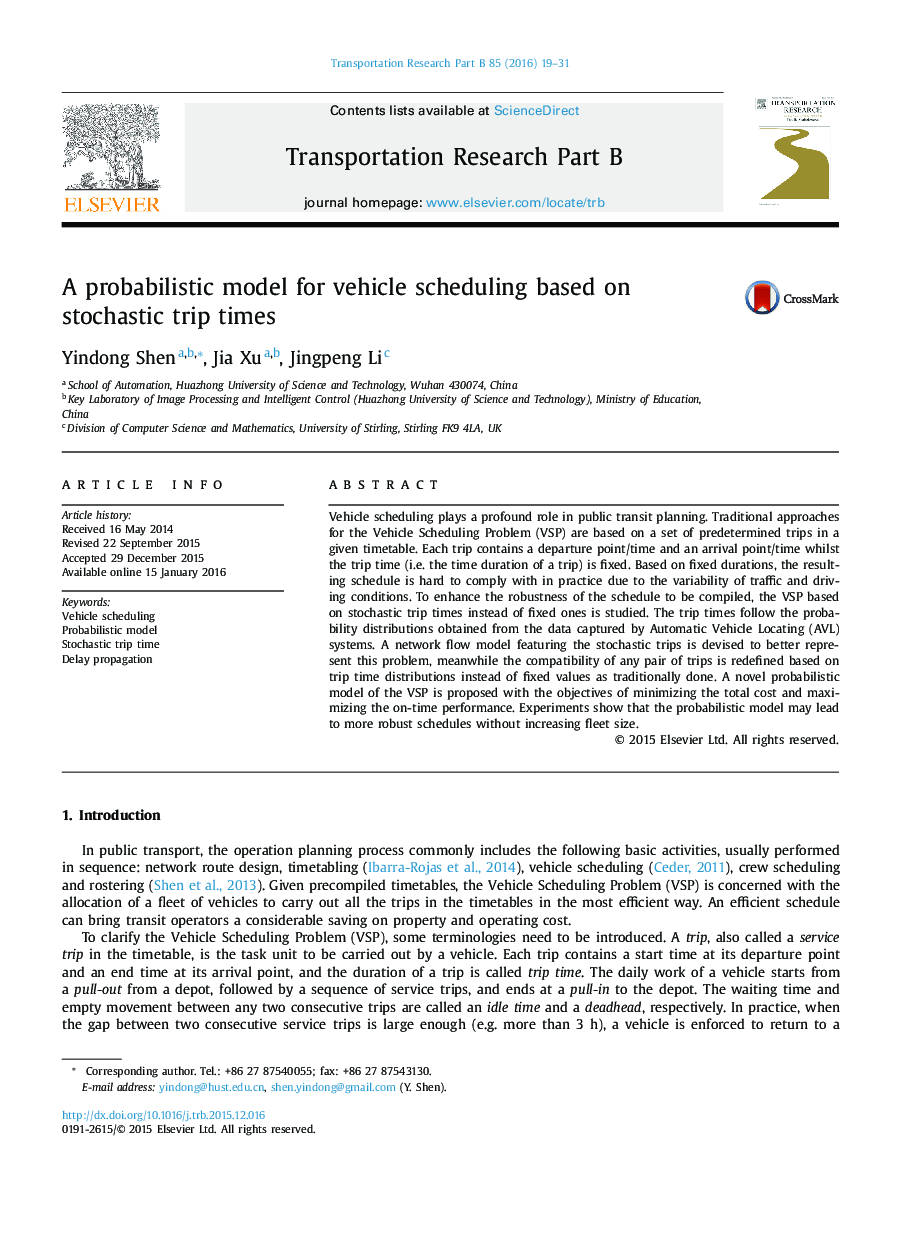| کد مقاله | کد نشریه | سال انتشار | مقاله انگلیسی | نسخه تمام متن |
|---|---|---|---|---|
| 1131558 | 1488959 | 2016 | 13 صفحه PDF | دانلود رایگان |
• We study the vehicle scheduling problem (VSP) based on stochastic trip times instead of fixed ones.
• The compatibility probability of any pair of trips is defined.
• A probabilistic model and its enhanced model featuring delay propagation are built.
• A hybrid heuristic vehicle scheduling approach is developed to solve the probabilistic models.
• Experiments show the models can enhance the on-time performance of resulting schedules considerably.
Vehicle scheduling plays a profound role in public transit planning. Traditional approaches for the Vehicle Scheduling Problem (VSP) are based on a set of predetermined trips in a given timetable. Each trip contains a departure point/time and an arrival point/time whilst the trip time (i.e. the time duration of a trip) is fixed. Based on fixed durations, the resulting schedule is hard to comply with in practice due to the variability of traffic and driving conditions. To enhance the robustness of the schedule to be compiled, the VSP based on stochastic trip times instead of fixed ones is studied. The trip times follow the probability distributions obtained from the data captured by Automatic Vehicle Locating (AVL) systems. A network flow model featuring the stochastic trips is devised to better represent this problem, meanwhile the compatibility of any pair of trips is redefined based on trip time distributions instead of fixed values as traditionally done. A novel probabilistic model of the VSP is proposed with the objectives of minimizing the total cost and maximizing the on-time performance. Experiments show that the probabilistic model may lead to more robust schedules without increasing fleet size.
Journal: Transportation Research Part B: Methodological - Volume 85, March 2016, Pages 19–31
